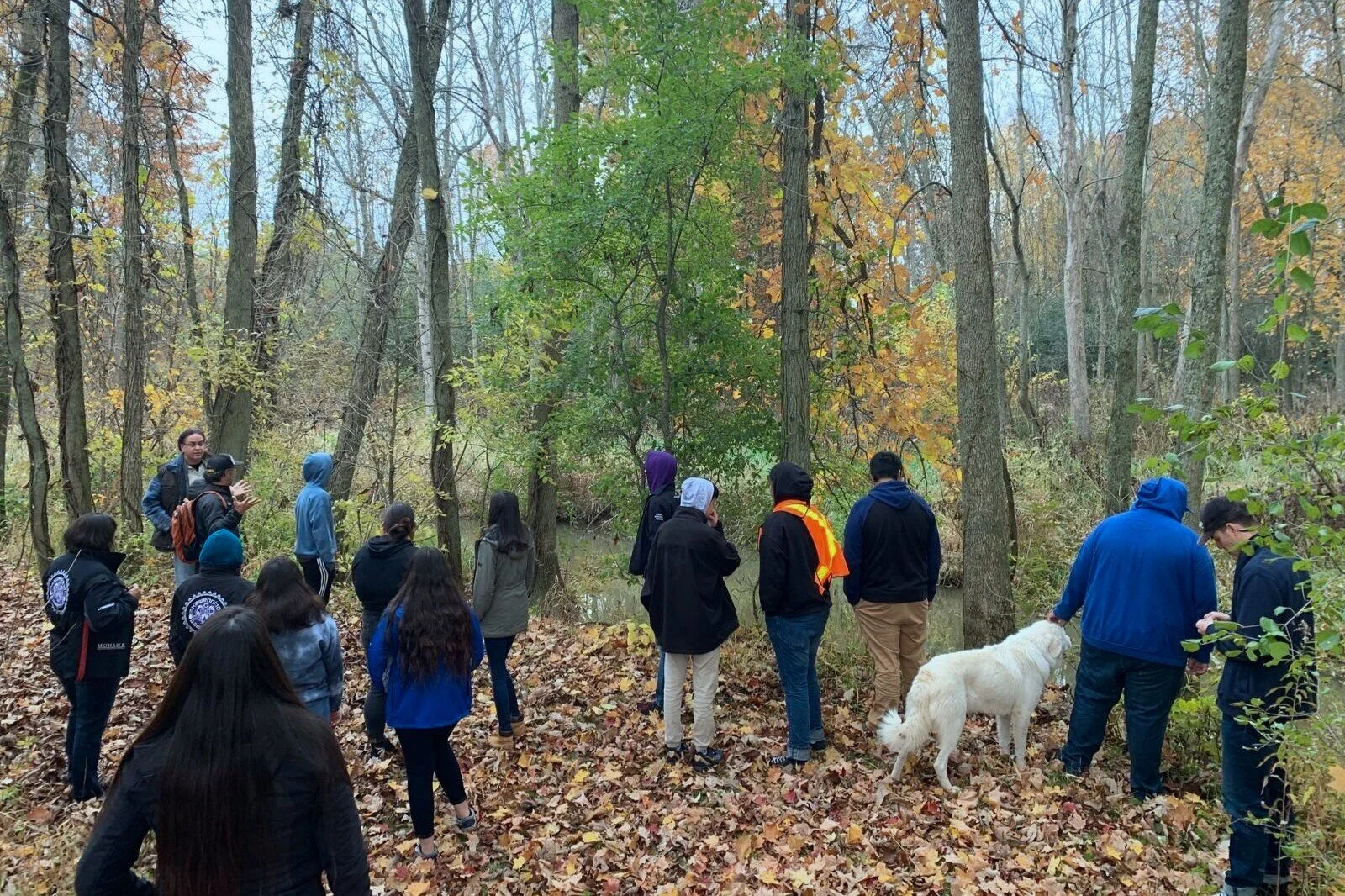In February 2020, 61 long-term drinking water advisories were active in Indigenous communities, affecting over 6,000 homes and community buildings.
Program Overview
Research Projects
Our research program is primarily carried out through two projects:
1. Co-Creation of Indigenous Water Quality Tools
2. Ohneganos - Indigenous Ecological Knowledge, Training, and Co-Creation of Mixed-Method Tools
Project Partners
The purpose of our research is to investigate Indigenous water insecurity, focusing on two communities: Six Nations of the Grand River in Ontario, and Lubicon Lake Band of Little Buffalo in northern Alberta.
Both communities have endured generations of limited access to clean drinking water and are worried about the level of pollution in the water and ecosystems that their communities rely on.
Co-Creation
Our research uses an innovative research framework, informed by the Indigenous community partners, to facilitate sharing and integration of Western Science (WS) and Indigenous and Local Knowledges (ILK).
This process of ‘co-creation’ enables us to develop appropriate, place-based, sustainable solutions to the water crisis impacting our partner communities and other Indigenous communities across Turtle Island.
“This is exciting because we’re bringing these two [knowledge] systems together, that have never really engaged to this level.”
Co-Creation of Indigenous Water Quality Tools (Co-Creation)
Co-Creation was developed by combining the Global Water Futures mandate, the goals outlined in UNDRIP, and the Sustainable Development Goals to ultimately empower our community partners to exchange knowledge and tools in order to manage water futures.
This will ensure holistic health and well-being, and deliver unprecedented scientific understanding, monitoring technologies, and modelling tools in response to water quality threats, especially to the under-serviced Indigenous communities. Co-Creation has three main subteams and several different research activities, listed below.
Diagnosing change, developing data, and creating solutions
Traditional Ecological Knowledge
Ecosystem
Health
Sensor Systems & Data Synthesis
Research activities include:
Investigate health issues related to water using community health surveys.
Develop a transdisciplinary risk assessment framework using a multi-stakeholder approach.
Develop local-scale climate change models to forecast and predict temperature and precipitation changes
Co-develop youth training certificate programs for research methodologies and environmental monitoring.
Develop water governance structrues based on Indigenous Knowledge and local laws.
Construct youth medicine gardens for traditional medicine and healing practices.
Conduct tap water testing to determine assess the prescence of bacteria and heavy metals.
Investigate the health of the local creeks and create GIS maps of natural features in the communities.
…and more!
Ohneganos - Indigenous Ecological Knowledge, Training, and Co-Creation of Mixed-Method Tools (Ohneganos)
Ohneganos is a response to the findings from the Co-Creation project indicating that there are alarming levels of water anxiety in our partner communities.
Following extensive engagement with our partners, we developed a plan - Ohneganos. This project has three main objectives: a) the co-creation of bilingual educational resources to build communities’ capacity to manage future environmental challenges; b) the strengthening of youth mental health resilience in relation to water security, c) the training of youth in water rights and governance strategies inclusive of Indigenous laws.
Developing Tools, Building Resilience, and Youth Empowerment
Indigenous knowledge training
Youth Mental
Wellness
Water
Governance
Research activities include:
Production of digital stories demostrating how water quality shapes and informs mental well-being.
Adapting a mental wellness mobile application to provide tools for youth struggling with water anxiety.
Investigate the impact of water insecurity on youth by delivering a mental wellness survey.
Identifying water protection measures and developing a citizen’s guide to ecocentric protection.
Developing a website to make educational resources publicly available.
Archival mapping of waterways, including place-naming in local languages and describing traditional uses.
Turtle tracking and monitoring to gather information on water geographies, environmental health, nesting sites.
Youth training in UNDRIP and attending the UNPFII for training in legal water governance frameworks.
Creating new pathways into post-secondary STEM programs for Indigenous Youth.
Creation of a new Traditional Ecological Knowledge program at local post-secondary institutions.
…and more!











